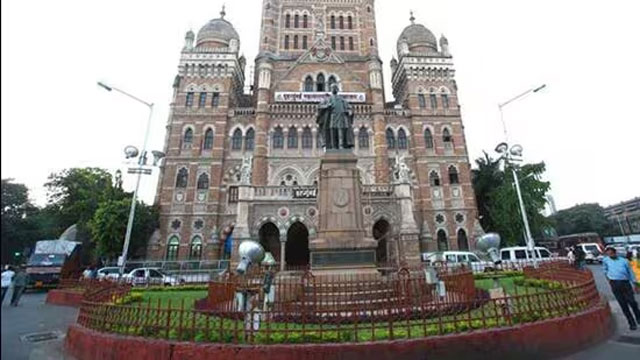Daijiworld Media Network - Mumbai
Mumbai, Oct 17: In a major shift towards privatisation, the Brihanmumbai Municipal Corporation (BMC) has handed over the development of reclaimed land along the city’s 10.58-km-long Coastal Road to Reliance Industries Limited (RIL) — a project expected to cost over Rs 400 crore. The decision, inspired by the late industrialist Ratan Tata’s offer to maintain the Coastal Road median, marks a significant step in the civic body’s broader strategy to outsource key municipal services through the Public-Private Partnership (PPP) model.
Over the past two years, the BMC has been rapidly expanding its partnerships with private organisations — from managing parking lots and launching a smart parking app to developing a textile museum, maintaining swimming pools and cycling tracks, running sports complexes, and even outsourcing non-core operations in nine peripheral hospitals.

According to the BMC, the PPP model helps conserve public funds while generating revenue from shared earnings, advertising rights, or CSR-based collaborations. “This allows the civic body to focus on major infrastructure projects without burdening taxpayers,” officials said.
With ongoing infrastructure projects worth nearly ?40,000 crore — including the extension of the Coastal Road up to Dahisar, construction of the Goregaon-Mulund Link Road, multiple sewage and desalination plants, and the city-wide road concretisation drive — the BMC has been tightening its budget controls.
Municipal Commissioner Bhushan Gagrani noted that the corporation must “strengthen fiscal resources” as expenses from major capital works start to mount. “I’ve asked departments to be selective in new projects and prudent with budgets. Once engineers realise approvals won’t come easily, cost estimates automatically reduce,” he said.
Data obtained via RTI by civic activist Godfrey Pimenta revealed that BMC’s fixed deposit corpus has dipped from Rs 91,690 crore in 2021-22 to Rs 79,498 crore. While officials insist the situation isn’t alarming, the trend prompted the administration to explore more self-sustaining revenue models.
Under current PPP arrangements, private operators are required to share a portion of their profits — 25% in the case of parking lots — with the BMC. The civic body has also launched smaller initiatives such as engaging contractors to clear abandoned vehicles from city streets, allowing them to profit from scrap sales while contributing modest revenues of Rs 1.5–1.8 crore to the BMC.
While the civic administration views PPPs as a practical way to maintain fiscal discipline, critics have voiced concerns over handing public assets to private hands.
“As long as efficiency and accessibility are maintained, private participation can be beneficial,” said Milind Mhaske, CEO of the Praja Foundation. “But transparency and accountability are crucial, and ownership of public amenities must remain with the BMC.”
However, the decision to run two civic hospitals in Govandi and Mankhurd under the PPP model has triggered widespread debate. Activists warn that privatisation could limit access to affordable healthcare for low-income citizens.
“This approach undermines the very concept of public healthcare,” said Abhay Shukla, national co-convener of the Jan Swasthya Abhiyan. Former corporator Ravi Raja added that while PPPs work for discretionary civic projects, “they should not replace essential public services like healthcare.”
Despite the criticism, BMC officials suggest that the privatisation drive will likely expand further. “The swimming pool outsourcing initiative was a trial run,” a senior official from the gardens department confirmed. “If successful, many other services will soon follow the same model.”
Observers note that while Mumbai’s civic administration is keen to modernise and reduce costs, the challenge will lie in balancing efficiency with equity — ensuring that the city’s march toward privatisation doesn’t come at the cost of its citizens’ access to essential services.